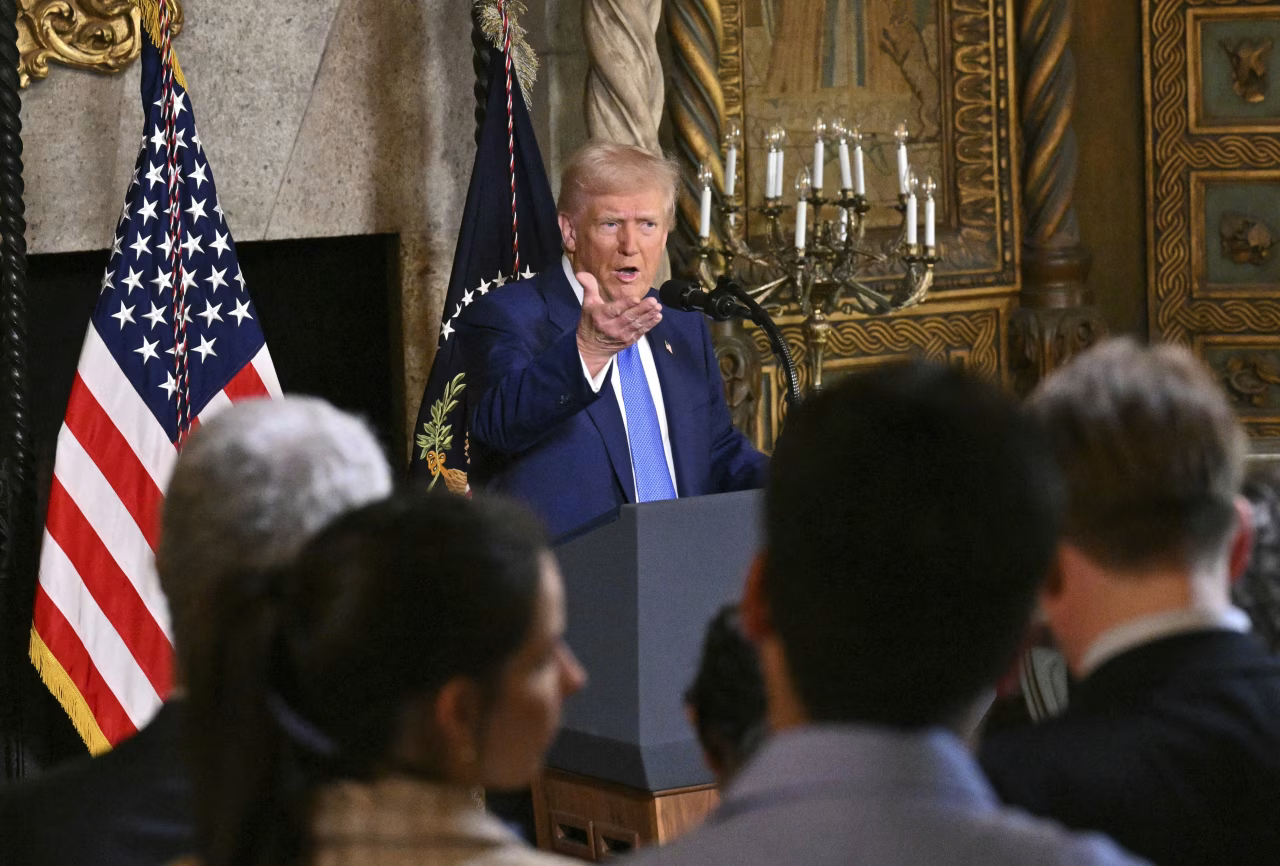
WASHINGTON—President Trump on Tuesday said he was considering tariffs of 25% or more on automobiles, semiconductors and pharmaceutical products.
Here’s what we know:
What Trump said
The tariffs on those industries may increase over time, Trump told reporters gathered at his Mar-a-Lago club in Florida, though he added that companies may be given a phase-in period to move production back to the U.S.
Tariffs will be “in the neighborhood of 25%,” Trump said, adding that they would “go very substantially higher over the course of the year.” Trump suggested a phase-in period, saying that he wanted to give companies time to come back to the United States. He said he would allow “a little bit of a chance” to re-shore production, without providing details.
The context:
The administration had previously said it would place tariffs on those industries and others it considers critical to national security, but previously, Trump hadn’t indicated how high the levies might be. Trump last week announced he would impose 25% tariffs on imported steel and aluminum, and before that he increased tariffs on Chinese goods by 10%.
Those tariffs could come on top of the “reciprocal” tariff action that the Trump administration says will equalize U.S. tariffs with the duties and non-trade barriers charged by other countries.
What comes next:
The administration has said that action is likely after the completion of its trade policy review on April 1. More short term, European Union trade commissioner Maroš Šefčovič is visiting Washington this week for talks on the tariffs and other trade disputes.
Trump indicated that countries may be able to negotiate for lower tariffs, reiterating his claim that the European Union had agreed to reduce auto tariffs in response to his recent threats—an assertion the EU denies. Even so, Trump said he was open to the bloc or other nations reducing tariffs, saying it would put nations “on the same playing field.”
It wasn’t immediately clear if new automotive tariffs would apply to all cars, or exempt those that comply with the U.S.-Mexico-Canada Agreement, the updated Nafta pact that Trump signed in 2020. The administration previously told U.S. automakers it would consider exemptions for those vehicles when Trump had threatened tariffs on Canada and Mexico earlier this month.


